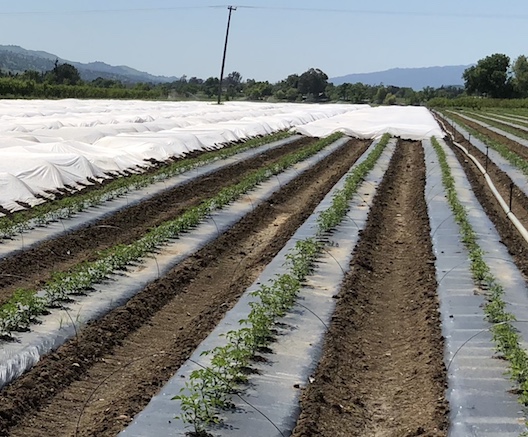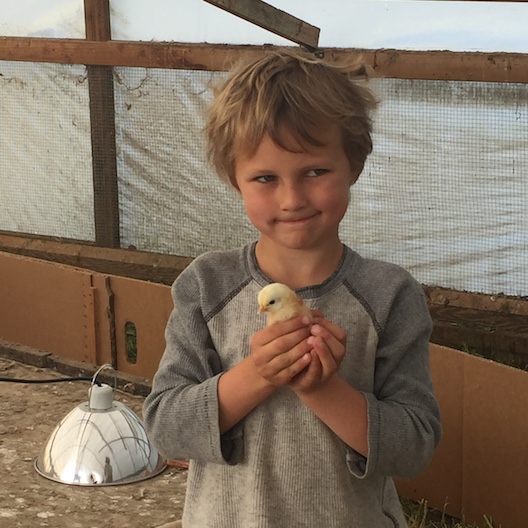Many of you may have heard about the outbreak of disease related to romaine lettuce that has been traced to processing plants in Arizona. The US Centers for Disease Control and Prevention is warning people not to eat any form of romaine lettuce grown in the Yuma, Arizona area. Since the origin of greens, especially those that are pre-washed and bagged, is not easily identified, the CDC adds helpfully that you should throw out any romaine lettuce you might have if you don’t know where it came from.
On Saturday morning we had several phone calls from people concerned about the news, asking if our lettuce was safe to eat. We were able to reassure them that it was, that it all comes from our farm in Guinda, and that we have been eating our lettuce for months, along with our farmers market customers and CSA members, with very positive results.
Eating fresh fruits and vegetables is so important to health that it comes as a blow when people get sick from contaminated produce. The outbreak of illnesses are terrible for the people who became ill, but also sad because these disease outbreaks erode people’s confidence in fresh produce. Even though the number of people affected is statistically small, the problem has a big impact.
There is a history of illness related to leafy greens, especially those that are purchased pre-washed and bagged. Awareness of the problem in the US skyrocketed after spinach processed by Natural Selection Foods in Salinas triggered a big outbreak in 2006. I am using the word processed here, because the ‘ready to serve’ bagged greens (lettuces, salad mixes, cut vegetables) that have become ubiquitous on supermarket shelves are part of an industry that has exploded in size in the last 25 years. The bagged, ready to eat vegetables are used in restaurants and sold in supermarkets, and have become a significant percentage of produce sales in many categories — fruit mixes, melons, apples, carrots, broccoli and other vegetables.
The industry is known as the ‘fresh-cut’ industry. Fresh-cut processing plants for greens are large-scale, buy from many growers, and are located primarily in California and Arizona. Despite precautions to protect consumers from pathogens, there are a number of risks uniquely associated with the fresh-cut industry: cutting tender young plants, mixing them in large batches from multiple sources, and shipping them in bags that require constant refrigeration to maintain freshness and safety. These issues are very different from potential risks that might be associated with growing and marketing whole produce in a more traditional, non-processed manner.
Cutting, peeling, and grinding vegetables to make them ready-to-eat, removes natural barriers to pathogens, like peels and intact surfaces. The wounded surfaces are exposed and may be more susceptible to infection from pathogens. The other thing that many consumers do not realize about the bagged produce is that the greens in those bags have been rinsed in chlorinated water (even those that are labeled organic), a practice that is prohibited in some European countries due to the potential production of by-products that are bad for people’s health.
The good news is that the option of buying from a CSA or a farmers market means that your vegetables aren’t rinsed in chlorine and haven’t travelled around in specialized plastic bags with “differentially permeable films, co-extruded plastics, gas permeability…” — whatever that all means. And even though the ‘ready to serve’ bags may be convenient, my advice is to buy whole produce in the produce section. Wash it and cut it up yourself! Full Belly Farm will be taking lettuce to the farmers markets this week, and we will be putting it into our CSA boxes as well. Enjoy it without fear.
—Judith Redmond
Our baby chicks have arrived and they’re irresistible!


